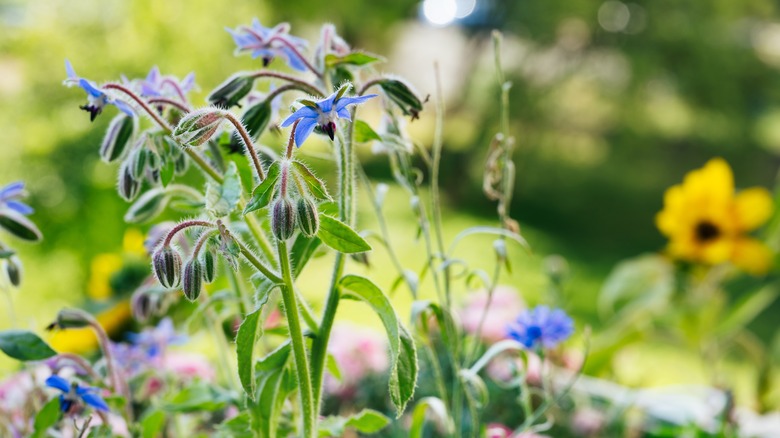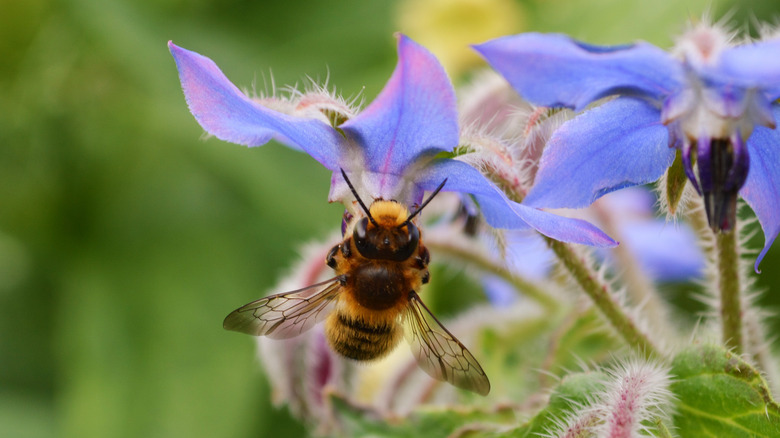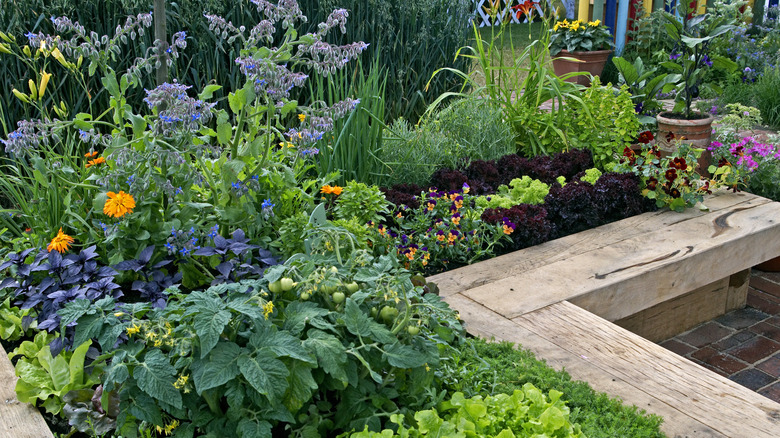The Benefits Of Planting Borage In Your Edible Garden
Borage is a beautiful flowering herb that will work wonders in your edible garden. Its bright blue flowers will add beauty to a functional space while they attract pollinators. They're tolerant of poor soils and dry conditions and can grow in U.S. Department of Agriculture zones 2 to 11, making them versatile plants that will cooperate almost anywhere. They're annual plants, so you don't have to protect them from cold temperatures to keep them around.
Traditional gardens tend to keep flowers, herbs, and vegetables together in their respective categories. Borage is the perfect example of why interplanting different plants together will work well. Edible gardens need pollinators to help them produce fruit. By planting a plant with lots of flowers, you're welcoming pollinators to your garden, and they'll hopefully make their home there. Plus, borage is an herb with edible flowers that can be prepared as a vegetable — it doesn't quite fit into one category, so you might as well plant it wherever it will fit in your landscape.
Borage attracts beneficial insects
The numerous blue flowers of borage will help attract beneficial insects that will eat or kill the pests. They're popular among bees, earning them the nicknames "bee bread" and "bee bush." They also attract lacewings and ladybugs, which go after aphids and tomato hornworms, as well as hoverflies and parasitic wasps. Pests are part of any garden, but you can keep them under control by inviting nature into your garden to let it do its thing.
By increasing pollinators and pest predators, you'll see a boost in the production of your crops. Plants will be healthier with fewer pests around, and the increase in pollinators will help plants produce more fruit. In a study where strawberries were planted with or without borage next to them, the ones with borage produced a higher quantity of strawberries, and the individual berries were, on average, heavier than the plants that didn't have borage.
Borage gets along with the garden
Borage isn't super picky about its conditions, so you're sure to have space for it in your garden. It tolerates poor soils and loves sunshine; as long as you don't expose it to a hard frost, it should be happy. Borage is a self-seeding annual plant. The plants won't come back, but they'll drop seeds, and you'll get a fresh crop each year.
Luckily, borage doesn't have invasive tendencies, so you don't need to worry about it taking over your garden. It will actually benefit your garden by adding trace minerals to the soil and continually blooming throughout the growing season to keep those pollinators coming back. Borage will add interest to your edible garden with its blue flowers, a color you don't see often in the vegetable garden. It has hairs on its stems and leaves, giving it a fuzzy appearance that will stand out among your tomatoes and herbs. They get along with most other plants but do the best with strawberries, tomatoes, spinach, legumes, and Brassicas.


